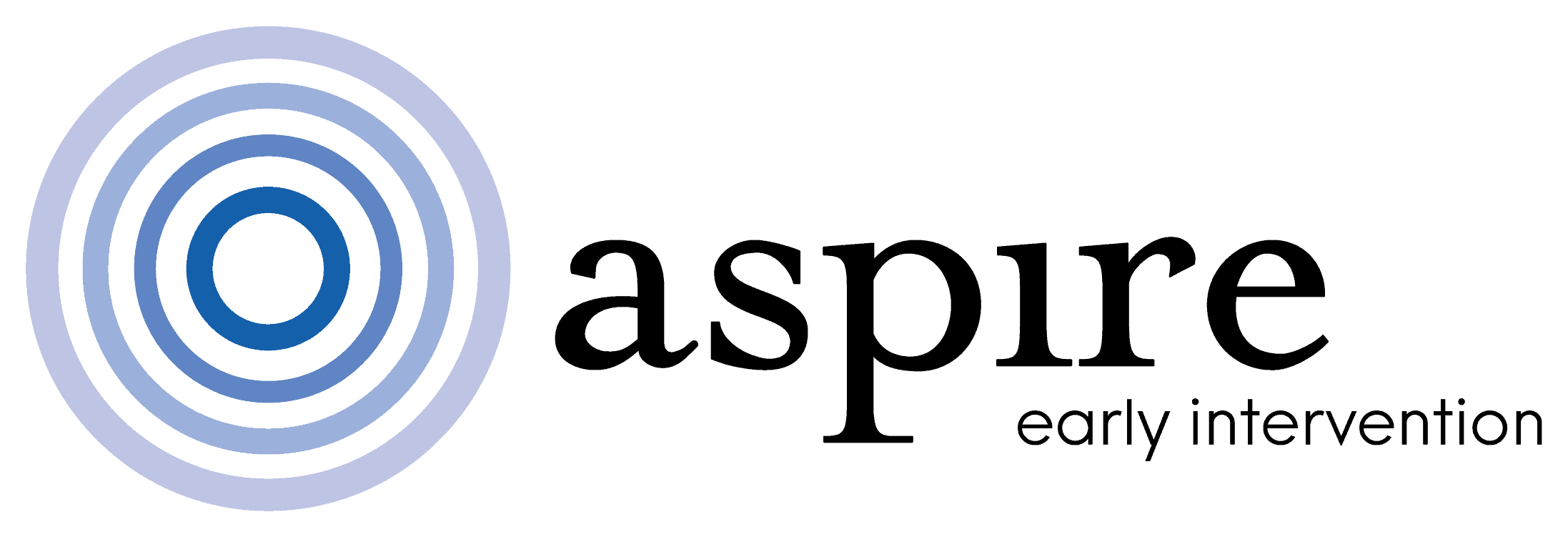Unlock your child’s learning potential today
We teach parents proven learning techniques when they are most effective - early.
Our Offerings
Aspire Early Intervention is a leading provider of early intervention for development delays in children including autism therapy in Sydney, Canberra and Melbourne. At Aspire, we offer comprehensive programs like our First Steps program and EIBI, which are grounded in our key principle of early intervention.
Our services are not just about addressing learning difficulties; they’re about equipping families with the necessary tools to support their child’s learning journey.
Our programs, workshops, and training are meticulously designed based on the proven Early Start Denver Model (ESDM) and Early Behaviour Intervention techniques, ensuring that every strategy is tailored to meet the unique needs of your family.
We proudly serve children and their families with a variety of learning impairments, from infancy through adolescence, including autism spectrum disorder, global developmental delay, Down syndrome, cerebral palsy, and attention deficit disorders.
Our offerings are delivered by an expert team, and diligently overseen by our seasoned leadership team. We aim to instil confidence in parents to set and achieve behavioural, educational, and social goals for their child alongside our passionate team.
Early Intervention Program
The Early Intervention Program is your introduction to early intervention. The program is a focused 12-week plan with individual sessions tailored to your child, paired with extensive parent training.
Our experienced clinicians use the Early Start Denver Model (ESDM) to empower you to become a proactive partner in your child’s learning journey. The skills you learn will not only be applicable at home but will also lay a strong foundation for understanding assessments, supporting your child in educational settings, and managing barriers to learning such as self-interest or aggressive behaviour.
Early Behaviour Intervention
Our EBI program is a more intensive early intervention program provided by our team of Behaviour Technicians at our clinic, your home, or at your child’s preschool.
Supervised by a Board Certified Behavior Analyst, this extensive program can range from 12 to 35 hours a week, and is fully tailored to your child’s needs. To ensure the best outcomes, we conduct fortnightly team meetings and parent coaching sessions where we collaboratively set and review goals to update your child’s plan.
Allied Health Services
In our commitment to early intervention and autism therapy, we are expanding our offerings to include allied health services. We are currently taking expressions of interest for Speech Pathology, Occupational Therapy, and Psychology.
For more information or to express your interest, please get in touch with our team.
Why Our Families Choose Us
Our families choose Aspire for autism therapy and early intervention therapies due to our dedicated team, and our personal and family-oriented approach.
The success of our programs is evident as many of our children transition to mainstream education and test within the normal range on the Autism Diagnostic Observations Schedule and other language and IQ tests.
How Can We Help?
At Aspire, we can help by identifying areas where your child may need support, providing you with tools to work alongside our team, and offering a learning plan tailored to your child’s needs and support community.
Our dedicated team provides therapies across a range of diagnosis such as autism spectrum disorder, global developmental delay, Down syndrome, cerebral palsy, and attention deficit disorders, and can offer guidance in navigating the NDIS.
Our Strategies for Early Intervention
Our approach to early intervention in NSW starts with our First Steps program, followed by EBI, with ongoing support thereafter.
The strategies and skills learned include language and motor skills development, play and social skills enhancement, attending skills, Theory of Mind, and Executive Functioning Skills.
The Best Age to Start ABA Therapy
Early intervention is key. If you have concerns about your child’s development, we recommend starting with an assessment. Early intervention means more time for parents to learn skills to support their child and more time for the child to receive community support in the clinic, and preschool and school settings.
Starting early also means fewer skills for the child to master to catch up to their peers. We work with children from as young as six months old, emphasising the importance of early intervention for the best possible outcomes.
23,000+
Hours of
learning (yearly)
9000+
Sessions in
past year
25+
Clinicians
Is my child at risk for developmental delay?
Trusted by Hundreds of Aussie Parents


Our Services
Let's choose the package that is best for you and explore it happily and cheerfully.
Early Intervention Program
Early Behaviour Intervention (EBI) Programs
Speech Pathology
& Consultancy
All of our services can be funded via NDIS. See if you’re eligible.
About Aspire
At Aspire we believe in building a supportive community around each child. Only through direct interaction between parents, therapists and program managers can the best outcomes be reached for your child.
Our team of highly experienced clinicians achieve outcomes with both children and their families, recognising the challenges for the whole family when a child has a learning impairment. Our programs are all NDIS accredited.

Frequently Asked Questions
Our programs, workshops and training are based on the Early Start Denver Model (ESDM) and Early Intensive Behaviour Intervention (EIBI) techniques.
We’re happy to connect you with Aspire families who have just started, are completing or have completed our programs. Many children we work with transition to mainstream education and test within the normal range on the Autism Diagnostic Observations Schedule and all other language and IQ testing.
We can also connect you with parents of children with similar diagnoses or you can review our family stories.
To access NDIS funding for our services, you must meet one of the three criteria below:
- Have a recognised diagnosis and live in an NDIS area.
- Have a delay in two or more areas (skill, speech/language/communication, motor, play and social).
- Display behaviours that are impeding development in two or more of those areas.
There are two ways to access NDIS funding, depending on your child’s age. If your child is over seven, funding is available via the NDIS pathway. If your child is aged zero to seven, you access funding through the Early Childhood Early Intervention (ECEI) pathway. NDIS eligibility is determined by your child’s diagnosis based on reduced functional capacity in one or more of the following areas:
- Communication
- Motor skills
- Social interaction
- Learning
- Self-care
- Self-management
However, a diagnosis of autism at any level will likely meet NDIS funding criteria.
Medicare and private health insurance also cover some or all associated treatment costs for services, such as occupational therapy, speech therapy, physical therapy and psychological services. Please check with your providers for more information.
You may also choose to privately fund your services if that’s an option for your family.
The programs we provide encompass all areas of development and can be implemented for children with any impairment or delay.
While most Early Intervention research focuses on autism, our programs are designed for children with a range of special needs, including global developmental delay, Down syndrome, attention deficit and/or hyperactivity disorder and Williams syndrome.
Our areas of focus:
- Language skill-building based on the Verbal Behaviour Framework
- Fine and gross motor skill building, and muscle strength training, if necessary
- Play skill building, including toy play and functional pretend play
- Social skill building from basic greetings to complex social skills, such as holding a conversation
- Attending skills, such as social referencing, following a parent’s instruction or the ability to complete tasks independently
- Development of Theory of Mind skills
- Teaching Executive Functioning Skills, including flexible thinking and problem solving
- Reducing inappropriate behaviours using ABA techniques, including extinction and functional communication
While each program is designed to suit your child’s individual needs, a typical early learner program should include skill-building in pivotal response areas, such as:
- Imitation
- Joint attention
- Object permanence
- Toy play and manipulation
- Social referencing/eye contact
- Attending skills
- Responding to and categorising visual, vocal and auditory stimuli
- Matching skills
- Manding using voice, Picture Exchange Communication System or sign language
- Fine motor skills, such as a pincer grasp and finger isolation
- Gross motor skills, including jumping, hopping and ball skills
- Self-help skills, such as grooming and toileting
While our area of expertise is early intervention, we cater for children aged 6 months to 18 years old.
With the right support, outcomes are usually better when children start early intervention at a young age. This is because they have fewer skills to master in order to catch up to their peers.
Do you have more questions?
Browse our full list of frequently asked questions by clicking above or feel free to reach out to our team for more information below.
